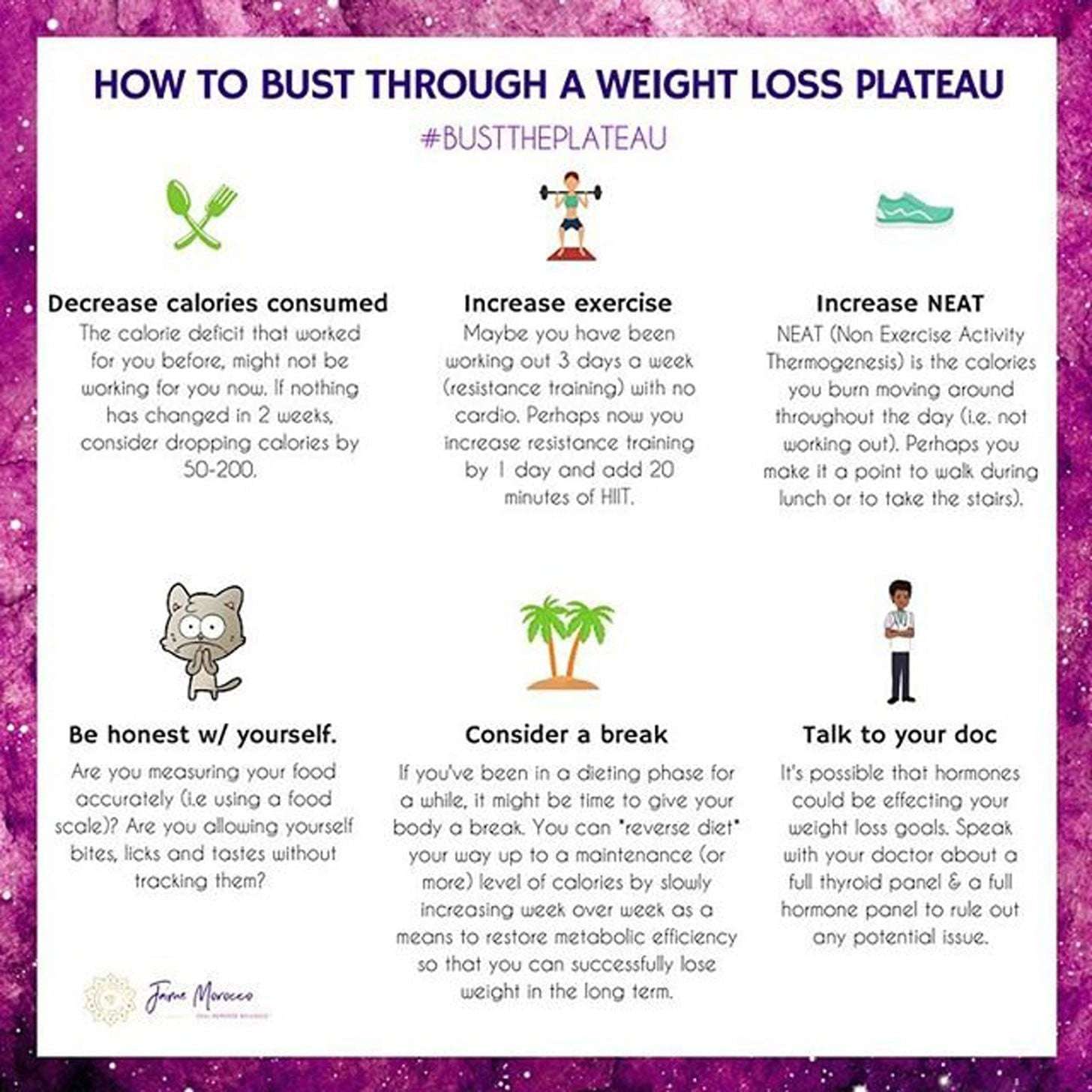Are you frustrated with hitting a plateau in your weight loss journey? It can be disheartening when you’re trying so hard to shed those pounds, but your progress comes to a halt. Don’t worry, though, because there are ways to break through that plateau and continue on your path to success. In this article, we’ll explore some effective strategies to help you avoid plateaus in weight loss, so you can keep moving forward towards your goals. Get ready to reignite your progress and get back on track!
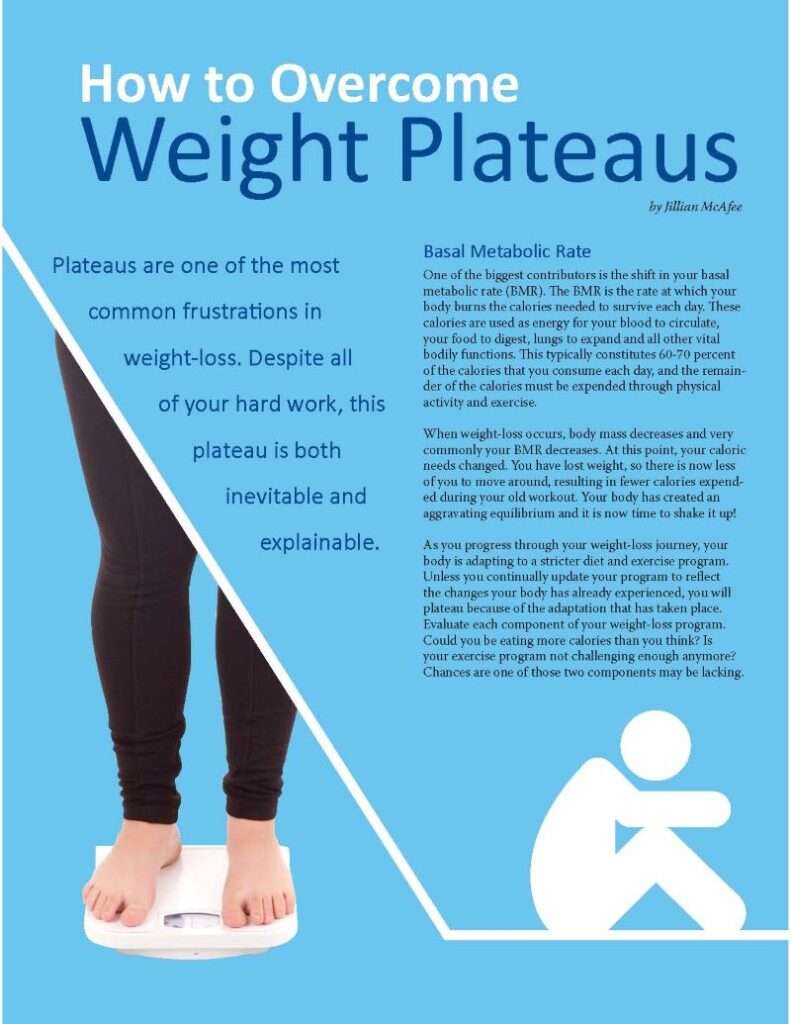
Set Realistic Weight Loss Goals
Setting realistic weight loss goals is essential for long-term success. When determining a healthy target weight, it’s important to consider factors such as your body type, height, and overall health. Consult with a healthcare professional to get a better understanding of what a healthy weight range is for you.
To make your weight loss journey more manageable, break down your goals into smaller, achievable targets. For example, instead of focusing on losing 50 pounds, aim to lose 5 pounds each month. This way, you can celebrate small victories along the way and stay motivated.
Regularly monitoring and tracking your progress is crucial for staying on track. Keep a journal or use a mobile app to record your daily food intake, exercise sessions, and weight measurements. This will help you identify patterns, make necessary adjustments, and stay accountable to your goals.
Maintain a Calorie Deficit
To achieve weight loss, it’s important to create a calorie deficit. This means consuming fewer calories than your body burns. Calculating your daily calorie needs is the first step towards maintaining a calorie deficit.
Use an online calculator or consult with a nutritionist to determine your daily calorie requirements based on your age, gender, height, weight, and activity level. Once you have this number, you can design a balanced and nutrient-dense meal plan that meets your calorie goals.
Practice portion control to ensure you’re not inadvertently consuming excess calories. Use measuring cups or a food scale to accurately measure your portions. This will help you avoid overeating and ensure you stay within your calorie limits.
Regularly monitor your caloric intake and adjust as needed. As you lose weight, your calorie needs may change, so it’s important to reassess and make appropriate adjustments to your meal plan. Keeping track of your calories will help you stay on track and avoid overeating.
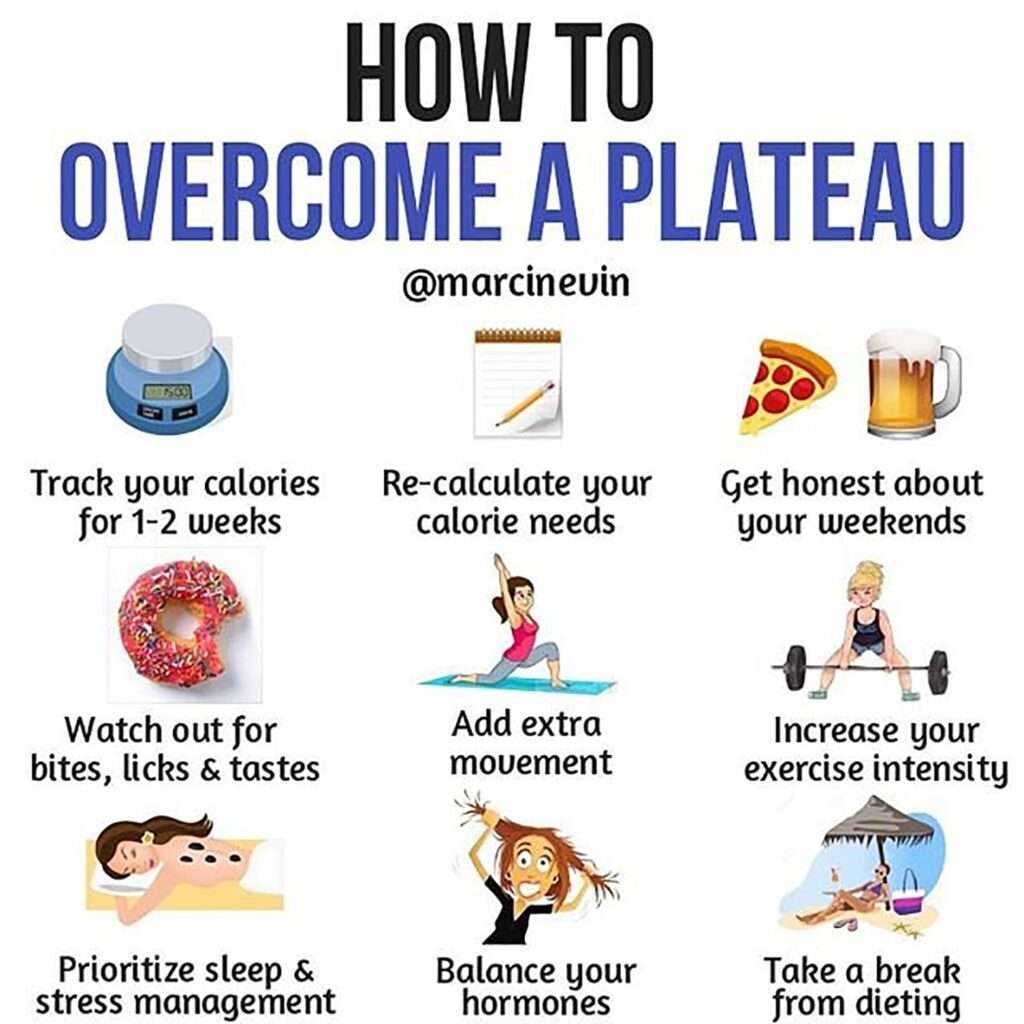
Incorporate Regular Physical Activity
Physical activity plays a crucial role in weight loss as it helps burn calories and increase your overall energy expenditure. Choose activities that you enjoy, as this will make it easier to stay consistent.
To reap the full benefits of exercise, include both cardiovascular and strength training exercises in your routine. Cardiovascular exercises like walking, running, cycling, or swimming help burn calories, while strength training exercises like weightlifting or bodyweight exercises help build muscle, which can increase your metabolism.
Set realistic exercise goals that fit into your schedule and fitness level. Start with shorter and less intense workouts, gradually increasing the intensity and duration as you build stamina and strength. Remember to listen to your body and pace yourself.
Consider incorporating High-Intensity Interval Training (HIIT) into your routine. HIIT involves short bursts of intense exercise followed by brief recovery periods. It is an efficient way to burn calories and improve cardiovascular fitness in a shorter amount of time.
Ensure Adequate Rest and Recovery
Rest and recovery are often overlooked aspects of weight loss, but they are just as important as exercise and proper nutrition. Getting sufficient sleep is crucial for overall health and weight management. Aim for 7-9 hours of quality sleep each night to promote optimal metabolic function and hormonal balance.
Allowing for rest days in your exercise routine is essential for muscle repair and growth. Plan rest days to give your body time to recover from intense workouts. This will help prevent injuries and improve overall performance.
In addition to physical rest, it’s important to practice relaxation techniques to manage stress. Stress can hinder weight loss progress by increasing cravings and cortisol levels, which may promote fat storage. Incorporate activities such as meditation, yoga, or deep breathing exercises into your daily routine to relax and reduce stress levels.
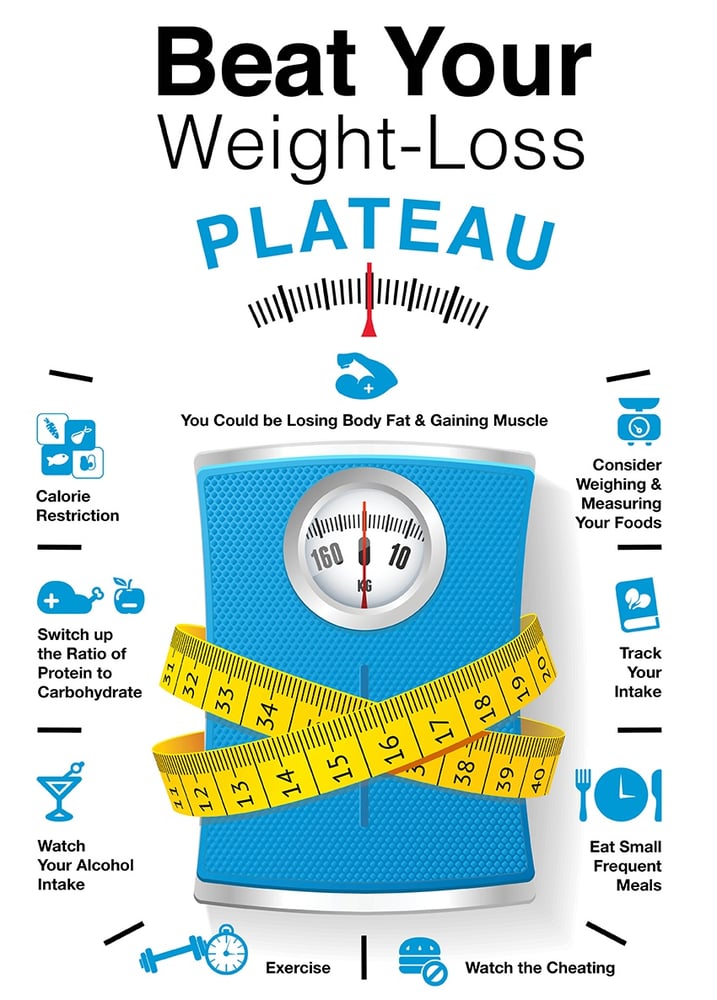
Stay Hydrated
Proper hydration is often overlooked but is crucial for overall health and weight loss. Drinking plenty of water throughout the day can help boost metabolism, suppress appetite, and enhance digestion.
Make it a habit to carry a water bottle with you at all times and sip water throughout the day. Aim to drink at least 8 glasses (64 ounces) of water daily, or more if you are physically active or live in a hot climate.
Limit or avoid sugary and calorie-laden beverages such as soda, fruit juices, and energy drinks. These beverages can quickly add up the calories without providing much nutritional value.
Monitor your water intake to ensure you’re staying adequately hydrated. Pay attention to your urine color – it should be pale yellow or clear, indicating proper hydration. If your urine is dark yellow, it’s a sign that you need to drink more water.
Increase Protein Intake
Increasing your protein intake can be beneficial for weight loss. Protein helps increase satiety, build and repair muscles, and boost metabolism.
Include lean protein sources such as poultry, fish, lean cuts of meat, tofu, beans, and low-fat dairy products in your meals. These foods are not only rich in protein but also provide essential nutrients.
Make it a priority to have a protein-rich breakfast. Including protein in your morning meal can help curb cravings, stabilize blood sugar levels, and keep you feeling fuller for longer. Opt for options like eggs, Greek yogurt, or a protein smoothie.
If needed, consider incorporating protein supplements such as protein powders or bars into your diet. However, it’s important to note that whole foods should always be the primary source of nutrients whenever possible. Consult with a healthcare professional or registered dietitian before adding supplements to your routine.

Vary Your Exercise Routine
Keeping your exercise routine varied and interesting is important for both physical and mental benefits. Trying different types of exercises not only helps prevent boredom but also challenges your body in different ways.
Alternate between high-intensity and low-intensity workouts to give your body a mix of challenges. High-intensity workouts such as sprints or circuit training can help burn more calories in less time, while low-intensity exercises like yoga or walking can help improve flexibility and promote active recovery.
Incorporating interval training into your workouts can help increase calorie burn and improve cardiovascular fitness. Interval training involves alternating between periods of high-intensity exercise and periods of rest or lower intensity. It’s an effective way to challenge your body and improve overall fitness levels.
Manage Stress Levels
Managing stress is crucial for overall well-being and weight loss. Stress can lead to emotional eating, hormonal imbalances, and hinder progress towards weight loss goals.
Identify and address your stress triggers by practicing self-awareness. Once you identify what causes stress in your life, try to find healthy ways to manage it. This can include activities such as meditation, yoga, journaling, spending time in nature, or talking to a trusted friend or professional.
Consider incorporating stress-relieving techniques into your daily routine. Meditation and deep breathing exercises can help calm the mind and reduce stress levels. Yoga and other mind-body practices combine physical movement with relaxation techniques, providing a holistic approach to stress management.
Seek support from friends, family, or professionals if you’re feeling overwhelmed. Surrounding yourself with a supportive network can provide encouragement, accountability, and practical advice as you work towards your weight loss goals.
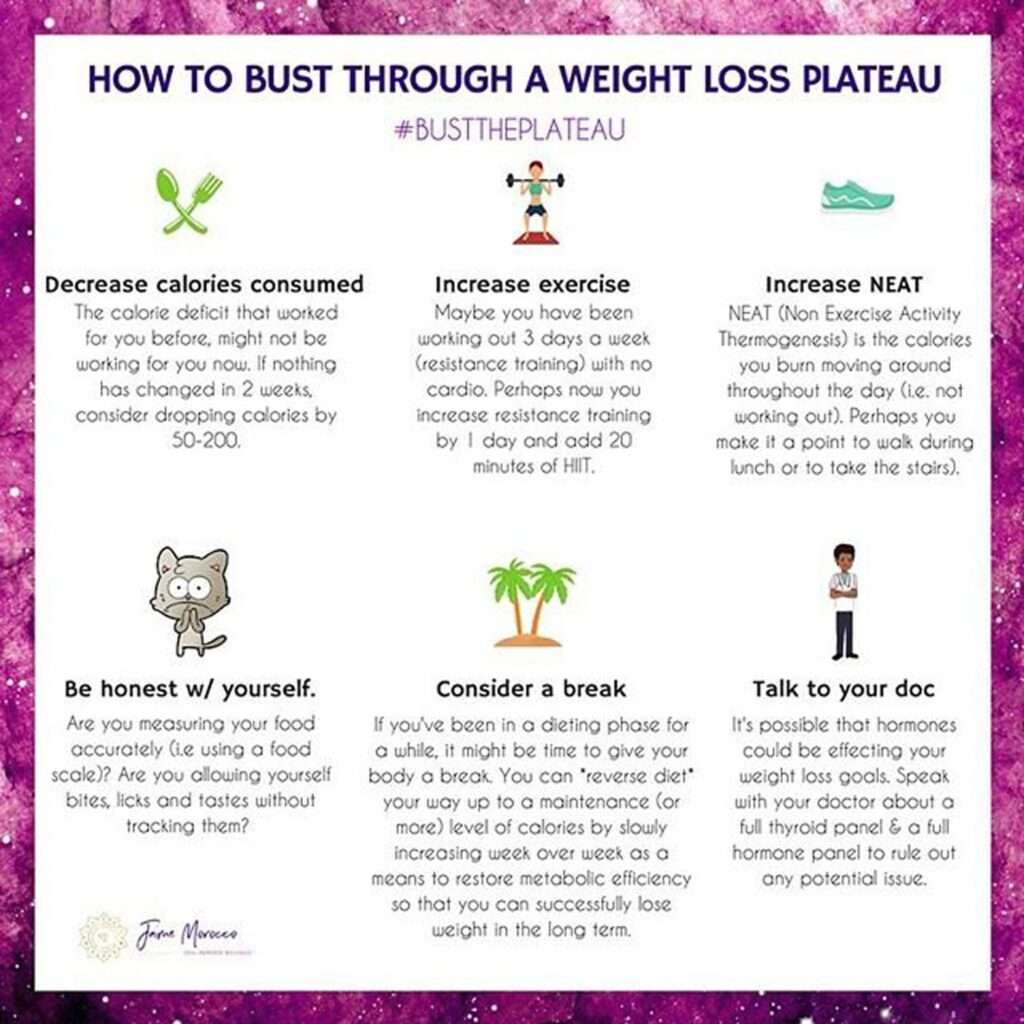
Avoid Skipping Meals
Skipping meals may seem like an effective way to cut calories, but it can actually hinder weight loss progress. When you skip meals, your blood sugar levels can become unstable, leading to increased cravings and potential overeating later in the day.
Eat regular meals to maintain stable blood sugar levels and provide your body with a steady stream of nutrients throughout the day. Aim for three balanced meals and a couple of healthy snacks, if needed.
Include balanced meals with adequate protein, healthy fats, and fiber to keep you feeling satisfied and nourished. Include a variety of fruits, vegetables, whole grains, lean proteins, and healthy fats in your meals to ensure you’re getting a wide range of nutrients.
Plan and prepare your meals in advance to avoid impulsive food choices. This can include weekly meal prepping, grocery shopping with a list, and having healthy snacks readily available. By having nutritious options on hand, you’ll be less likely to reach for unhealthy convenience foods.
Stay Accountable and Get Support
Staying accountable to your weight loss goals can greatly increase your chances of success. Joining a weight loss support group or finding an accountability partner can provide motivation, advice, and a safe space to discuss challenges and successes.
Consider working with a registered dietitian or personal trainer if you need personalized guidance. These professionals can provide expert advice, meal planning tips, exercise recommendations, and ongoing support throughout your weight loss journey.
Remember, weight loss is a journey, and it’s important to be patient and kind to yourself. Celebrate small victories along the way, focus on progress rather than perfection, and embrace a healthy and sustainable lifestyle that supports your long-term well-being.
